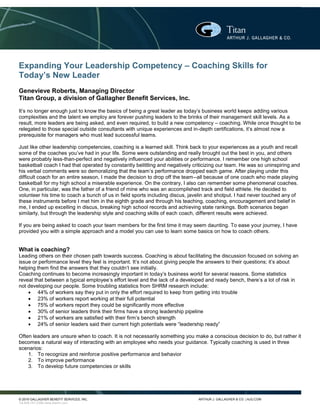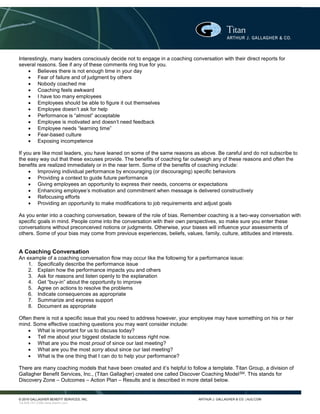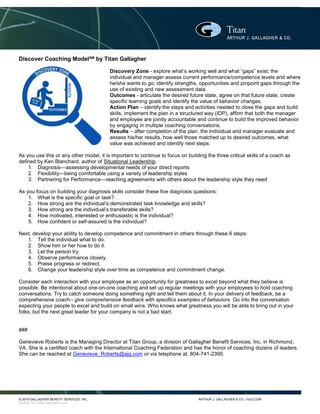The document discusses the importance of coaching skills for leaders and provides a model for effective coaching conversations. It notes that coaching has become a critical leadership competency as business complexity increases. An effective coach facilitates discussions to help employees find their own answers and solutions to improve performance. The Discover Coaching Model outlined includes exploring strengths and gaps, setting outcomes and goals, creating action plans, and evaluating results. Coaching conversations should be regular opportunities to provide comprehensive feedback and build on successes.


